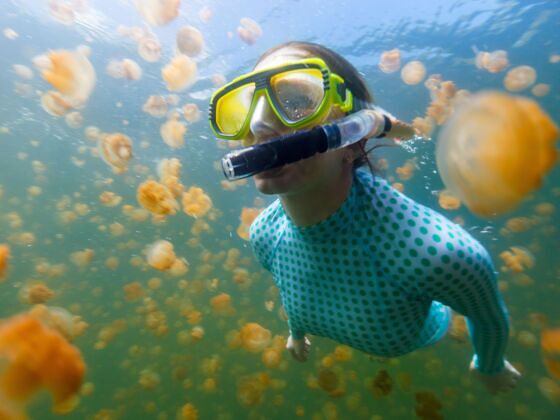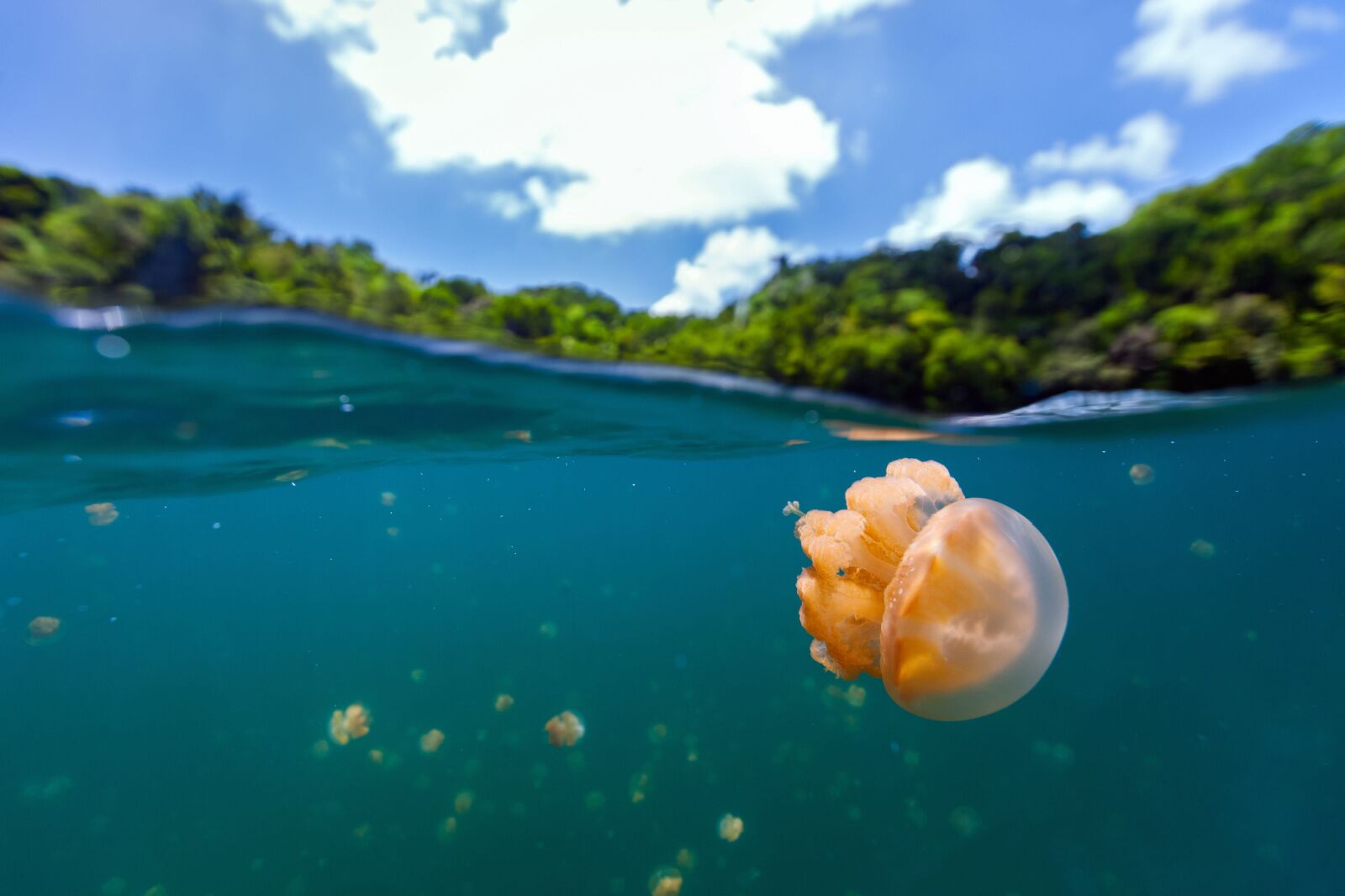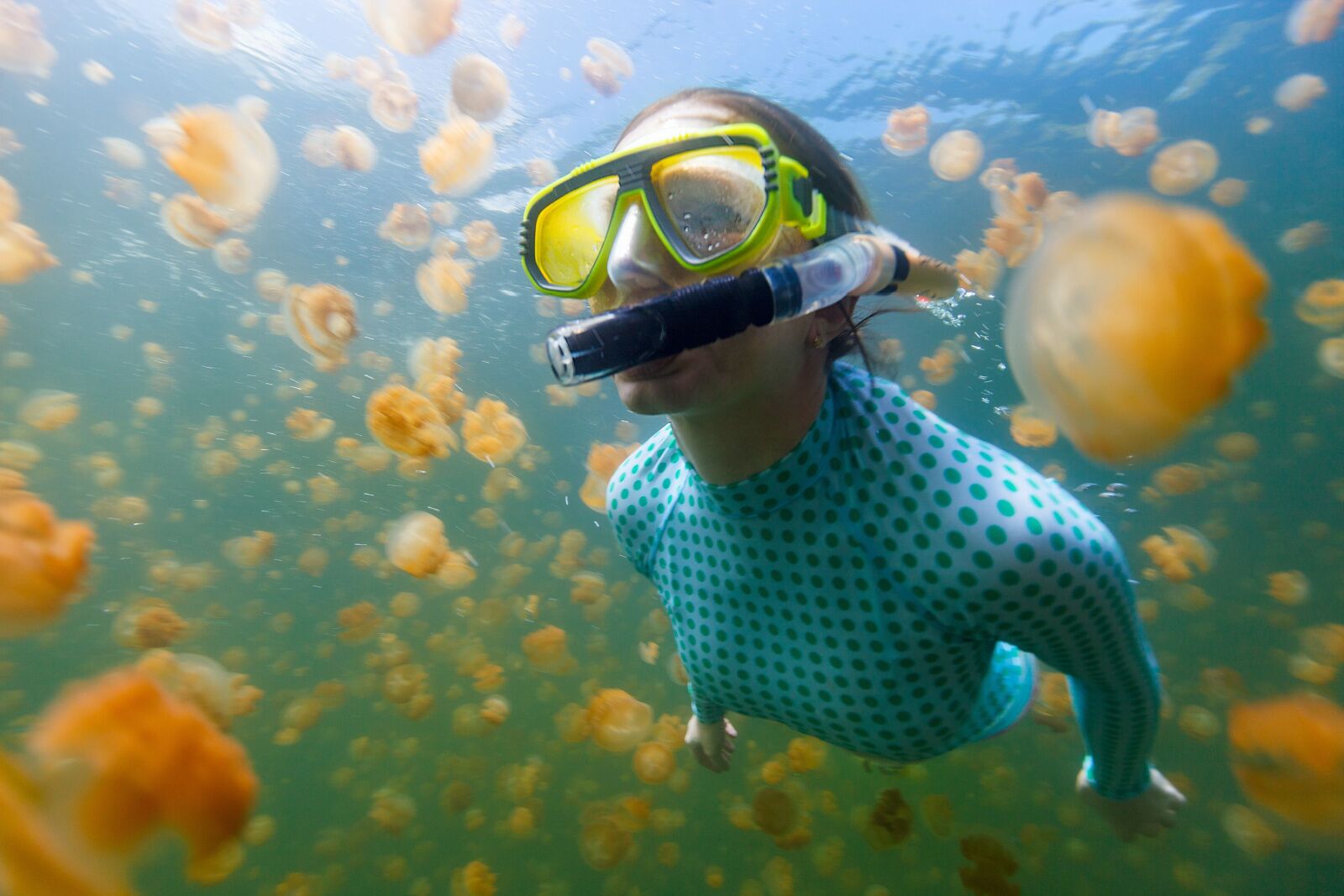Jellyfish Lake in Palau is a marvel of nature and a popular tourist destination. Formed over 12,000 years ago by the rising sea levels that also created Palau’s other famous Rock Islands, this lake is home to millions of ‘golden’ jellyfish (Mastigias papua) that swim in its crystal blue waters.
Many people come to the lake to swim and snorkel with the gentle creatures, who have no natural predator or competition for food in the lake — it’s an ideal environment for them to thrive. Because of that, they don’t need the same defenses as other jellies, and thus have such weak stinging capabilities that they can’t hurt humans.


